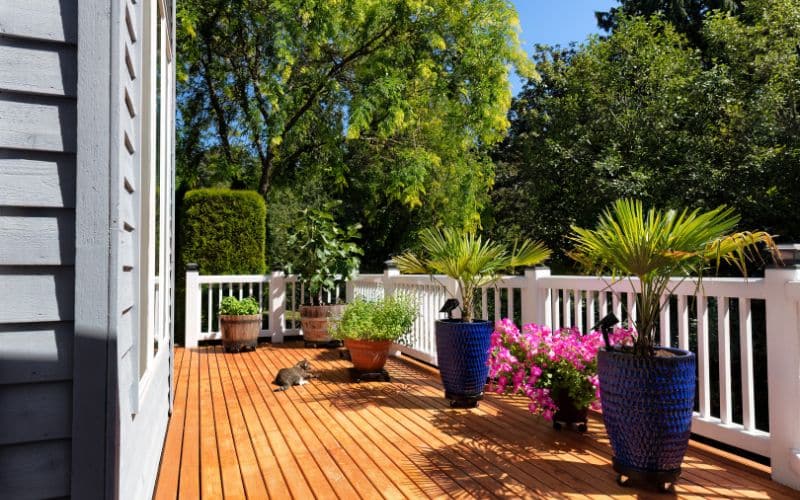
What is the Importance of a Well-Designed Deck
A well-designed deck significantly enhances the outdoor living experience, adds aesthetic appeal, increases the functionality of your outdoor space, and can boost the overall value of your home.
Evaluating Your Deck Needs
Identify the purpose of your deck: Determine the primary function(s) of your deck, such as relaxation, entertainment, or dining. This decision will influence the design and features incorporated into your deck.
Size and shape: Calculate the optimal size and shape of your deck to ensure there is enough space for furniture, foot traffic, and other desired features within the available outdoor space.
Budget and material considerations: Estimate the costs for materials and construction, which will help you decide on the type of materials, design features, and whether to seek professional help or opt for a DIY approach.
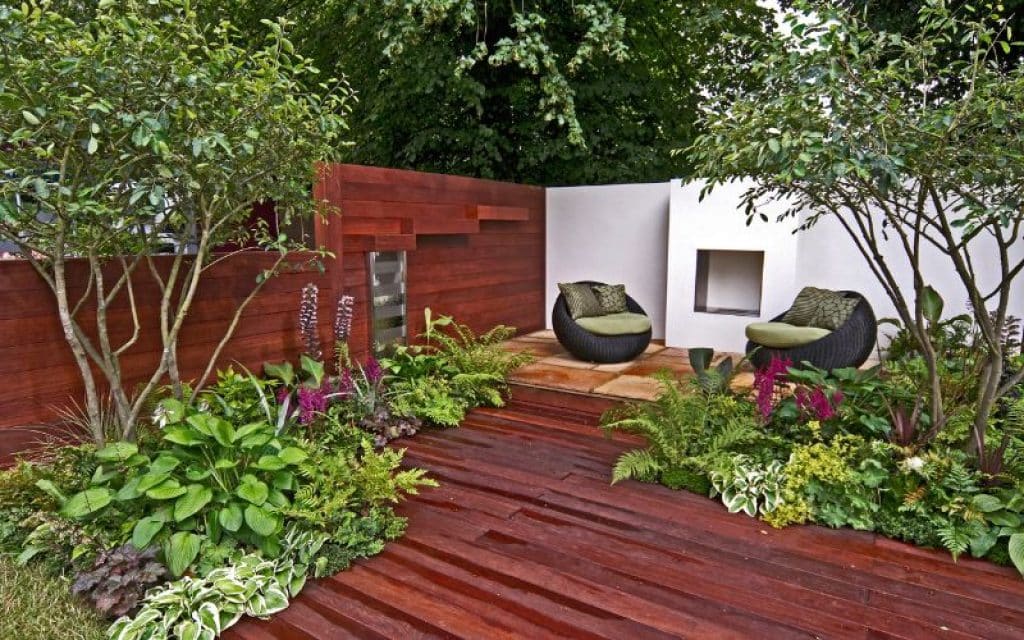
Fundamental Deck Design Elements
When designing your deck, consider four fundamental elements:
Appealing Layout: Create a visually appealing and functional deck by incorporating open space, designated seating areas, and varying levels.
Color & Material Selection: Select colors and materials that complement your home’s exterior and adhere to a cohesive color scheme, creating harmony.
Balanced & Cohesive Design: Experiment with different layouts, considering flow of movement and balance, to achieve a cohesive and aesthetically pleasing design.
Multi-functional Areas & Features: Enhance deck usability by adding built-in features such as seating, storage, and outdoor cooking spaces to accommodate various activities and needs.
Selecting the Ideal Materials
When choosing the ideal materials for your deck, consider the following aspects:
Pros and Cons of Common Deck Materials: Familiarize yourself with the advantages and disadvantages of common options, like wood and composite materials. Wood offers a natural look but requires maintenance, while composite materials are low-maintenance but can be more expensive.
Weather and Maintenance Needs: Select materials and finishes that can endure the climate conditions specific to your region. Evaluate the time and effort necessary for maintenance when choosing materials to ensure their longevity and appearance.
Costs and Durability: Balancing initial costs and long-term durability is essential. Invest in high-quality materials that may save you time and money in the long run, offering long-lasting benefits despite potentially higher upfront costs. Keep in mind the required maintenance for each material as well.
Design Ideas and Inspirations
Discover Inspiring Designs: Browse through design magazines, social media platforms, websites, and other visual sources to gather inspiration from captivating and creative deck designs.
Examine Unique Elements: Emphasize originality by identifying and integrating unique aspects, such as distinct shapes, multi-levels, or bold color combinations, to craft a truly distinguishable deck.
Investigate Remarkable Transformations: Explore examples of deck renovations that have significantly enhanced both aesthetics and functionality, using these as motivation and guidance for your own deck project.
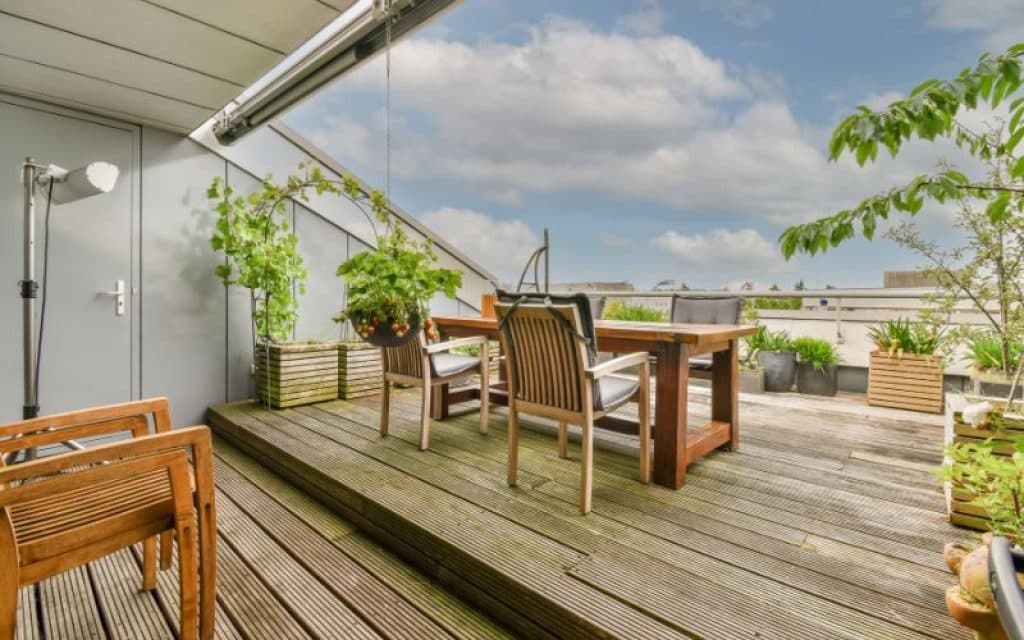
Deck Accessories and Features
Enhance your deck with additional accessories and features:
Usability Add-ons: Improve your deck’s functionality and comfort by considering lighting, seating, heating, or shading solutions, allowing for year-round enjoyment of your outdoor space.
Outdoor Cooking & Dining Spaces: Design inviting spaces for entertaining guests and dining al fresco, creating a welcoming atmosphere for social gatherings.
Incorporate Plants: Add visual appeal and a touch of nature by incorporating plants into your deck design. Use containers, built-in planters, or vertical gardening techniques to display plants, adding texture and color to the space.
Understanding Building Codes and Regulations
Familiarizing yourself with building codes and regulations for your deck project:
Stay Informed: Educate yourself about your local building codes, permit requirements, and safety regulations relevant to deck construction to ensure that your project adheres to legal and safety standards.
Ensure Compliance: Research municipal building codes and permit processes specific to your area. Verify that your deck design meets these standards and secure any necessary permits before starting the construction process to avoid legal issues or penalties.
Professional Assistance vs. DIY
When deciding between professional deck construction versus DIY:
Skillsets, Time, and Resources: Assess your own skills, available time, and necessary resources to determine whether you’re equipped to build the deck as a DIY project or if professional assistance is required.
Hiring a Reputable Builder: If opting for professional help, find a qualified and trustworthy deck builder through recommendations from friends and family, online reviews, and by requesting references.
DIY Preparation: If choosing the DIY route, equip yourself with essential tools and knowledge by researching tutorials, building plans, and seeking advice from professionals or experienced DIY enthusiasts in online forums. This preparation will help ensure your project’s success.
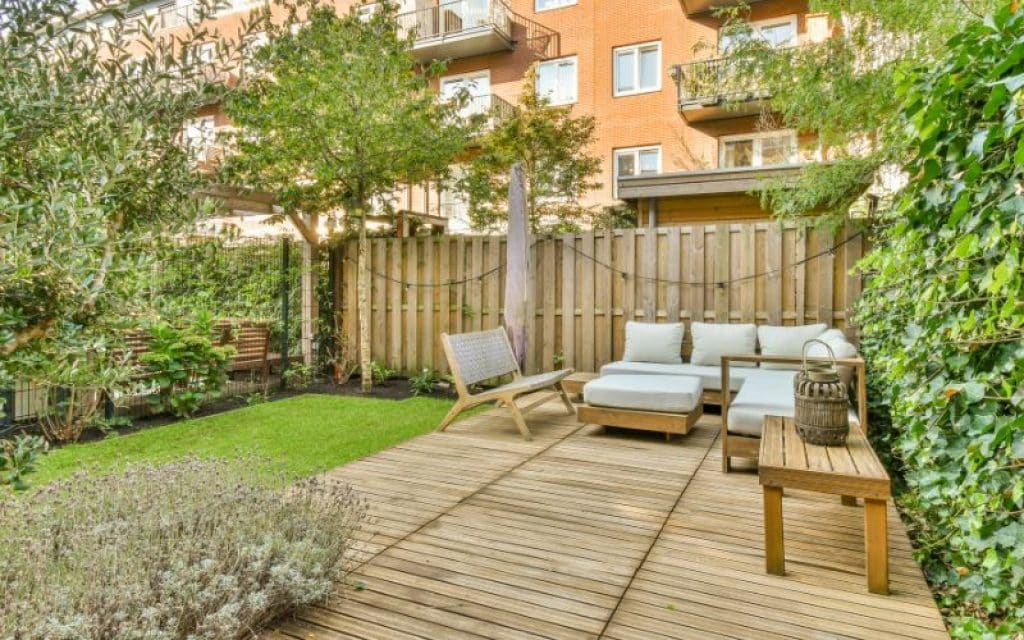
Conclusion
In conclusion, designing and constructing a well-crafted deck involves various steps, including assessing your deck needs, considering design elements, gathering inspirations, adding accessories and features, selecting the right materials, and complying with relevant building codes and regulations.
By carefully navigating these aspects, you can create a stunning and functional deck that caters to your preferences while enhancing your outdoor space and home value. Remember to weigh the benefits of working with a professional versus embarking on a DIY project to ensure the most successful outcome for your deck construction.
Deck Design FAQs
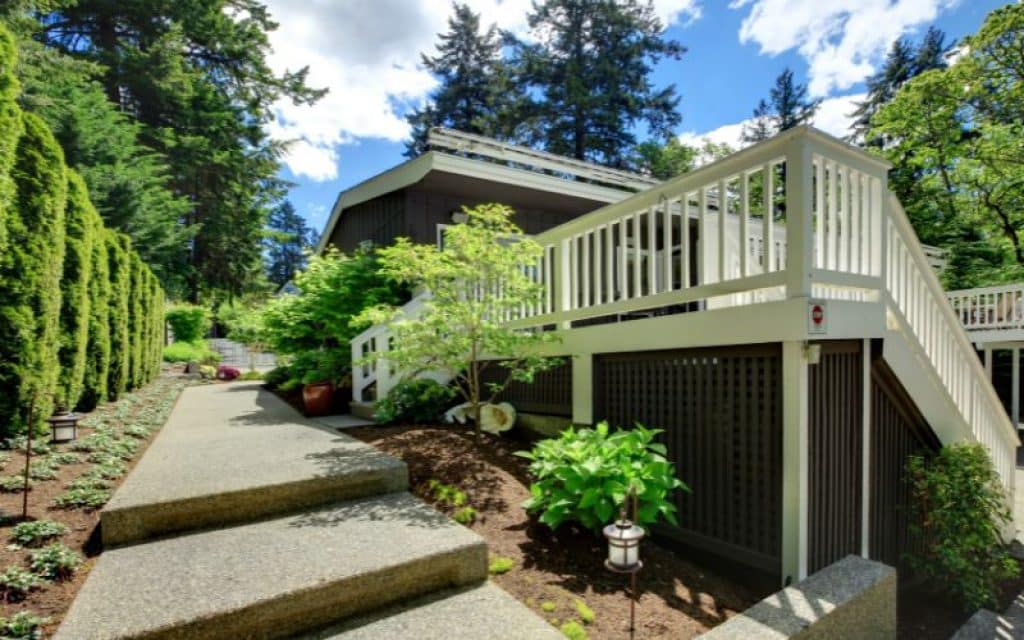
What is the typical lifespan of a wooden deck?
Expected wooden deck lifespan ranges from 10-20+ years, influenced by wood type, weather, and maintenance.
How much does it cost to build a deck?
Deck construction costs vary according to size, materials, and design complexity, potentially starting from $35 per square foot.
Can I add a pergola or shade structure to my deck?
Incorporating pergolas or shade structures is feasible, but remember to consider local regulations and associated costs.
How to design a deck that is safe?
Enhance deck safety by installing railings, ensuring support, and utilizing slip-resistant materials, alongside proper maintenance.
When is the best time to install a new deck?
The best time for deck installation depends on climate and contractor availability, although spring and early summer are popular choices.
Colin Macmillan is a seasoned entrepreneur and the CEO of Riverwood Landscape, a leading landscaping company based in Canada. He has been at the helm of the company since leaving high school, demonstrating his strong leadership skills and business acumen.
Colin’s expertise lies in various aspects of landscaping, including lawn care, interlocking, sod installation, and commercial maintenance. His hands-on approach and dedication to the craft have been instrumental in building Riverwood Landscape into a reputable brand.
One of his most notable achievements is the creation of a successful landscape franchise that services multiple locations. This accomplishment underscores his strategic thinking and ability to scale operations effectively.
Colin has also had the privilege of working with Guelph Hospital for landscaping and maintenance, a testament to the trust and reliability that his company has earned over the years.
His professional mission is to offer the best services and experiences for customers, a goal that he tirelessly pursues. Colin’s commitment to excellence and customer satisfaction continues to drive the growth and success of Riverwood Landscape.








